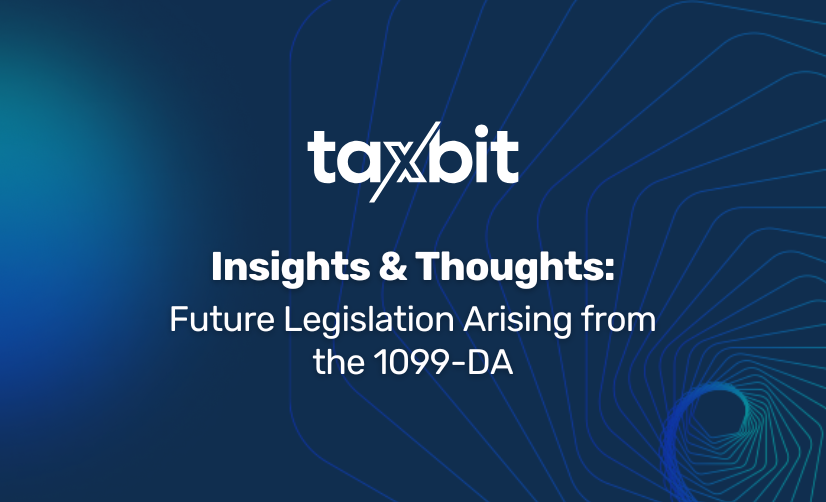Explore the draft Form 1099-DA's potential implications for digital asset brokers, including changes to broker definitions and the possible application of wash-sale rules to cryptocurrencies. Uncover the key questions and what they mean for the future of digital asset taxation.
Introduction:
The recent unveiling of the draft Form 1099-DA by the U.S. Treasury and the Internal Revenue Service (IRS) has sparked significant curiosity. This article delves into the critical questions it raises about the evolving definitions and regulations in the digital asset space.
What is Form 1099-DA?
Form 1099-DA is a proposed tax document designed to streamline the reporting process for brokers handling digital assets. This initiative reflects the Treasury’s efforts to adapt tax regulations to the pace of technological advancements in finance.
What is the list of brokers on the draft form?
The draft form excludes certain entities from a listing of reporting broker, most notably centralized exchanges and decentralized finance (DeFi) protocols. It contains a list of checkboxes for the type of broker the reporting entity is. That list is the following:
- Kiosk Operator
- Digital Asset Payment Processor
- Hosted Wallet Provider
- Unhosted Wallet Provider
- Other
The Role of Centralized Exchanges and DeFi:
Centralized exchanges and DeFi protocols play critical roles in the digital asset market, yet their omission from specific categories of reporting broker on the draft Form 1099-DA raises interesting questions. Why might these entities have been excluded from the draft Form 1099-DA? Is this intentional by the IRS? Should centralized exchanges and DeFi check the “Other” box when doing tax reporting once it goes into effect? Or does the IRS simply have more work to do on this form? The overwhelming majority of digital asset transactions take place on centralized exchanges, and it would seem curious if the Treasury were to put out final regulations excluding centralized exchanges from being tax-reporting brokers.
Treasury released proposed regulations last August for how brokers would have to do tax reporting. The final regulations are still forthcoming. The biggest question for those final regulations is how Treasury will define “broker,” meaning who ultimately is required to do tax reporting. The proposed regulations include centralized exchanges, DeFi protocols, digital asset payment processors, and wallet providers that offer marketplace access to their users. The issue of whether DeFi should have to do tax reporting has been perhaps the most contentious one during this rulemaking process. By excluding it from this list, the Treasury might unintentionally give hope to the DeFi community that final regulations will exclude it from the final definition of broker.
Implications of Wash-Sale Rules on Digital Assets:
The inclusion of wash-sale rule reporting in the draft Form 1099-DA raises the question of whether the IRS is considering how existing securities transaction rules might apply to digital assets. Currently, the IRS prohibits investors from claiming tax losses on “wash sales” of securities. This rule is designed to prevent taxpayers from claiming artificial losses by selling securities at a loss and quickly repurchasing them. The inclusion of this information on the draft form would apply to tokenized securities, but it would also be convenient if Congress were to apply the wash-sale rules to digital assets that are not securities.
Understanding Wash Sales:
A wash sale occurs when an investor sells a security at a loss and then repurchases the same or a “substantially identical” security within 30 days before or after the sale. Traditionally, this rule applies to stocks and securities but has yet to be extended to cryptocurrencies and other digital assets.
Potential Changes and Their Effects: If the Congress extends the wash-sale rules to include digital assets:
- Investor Impact: Investors might need to adjust their trading strategies significantly. The ability to harvest tax losses, a common strategy in the volatile crypto market, could be restricted, leading to larger tax liabilities.
- Market Dynamics: The overall liquidity and trading volume in the cryptocurrency markets might experience changes, as a rule, which would deter the frequent buying and selling of assets around significant price drops.
Legislative Context:
Including digital assets under wash-sale rules could require legislative action or perhaps even administrative rulemaking. The inclusion of this language in the draft Form 1099-DA could reflect the IRS’s anticipation of either of these things happening beyond needing it there for tokenized securities already subject to the rule.Various tax reform proposals currently discuss this topic, indicating that changes could be forthcoming.
Further Reading and Resources:
- IRS Guidelines on Wash Sales: IRS Official Website
- Understanding Cryptocurrency Taxation: A quick guide to wash sales rule for crypto. Taxbit
- Impact of Wash-Sale Rules on Market Behavior: Analytical articles discussing the potential implications of applying wash-sale rules to digital assets. CoinDesk, CryptoNews
Conclusion:
As the landscape of digital finance continues to evolve, the draft Form 1099-DA is a crucial indicator of upcoming changes in tax reporting. Stakeholders must stay proactive to adapt to these developments effectively.
.png)


